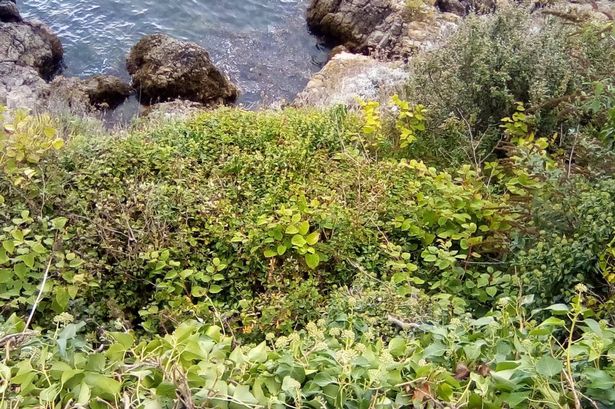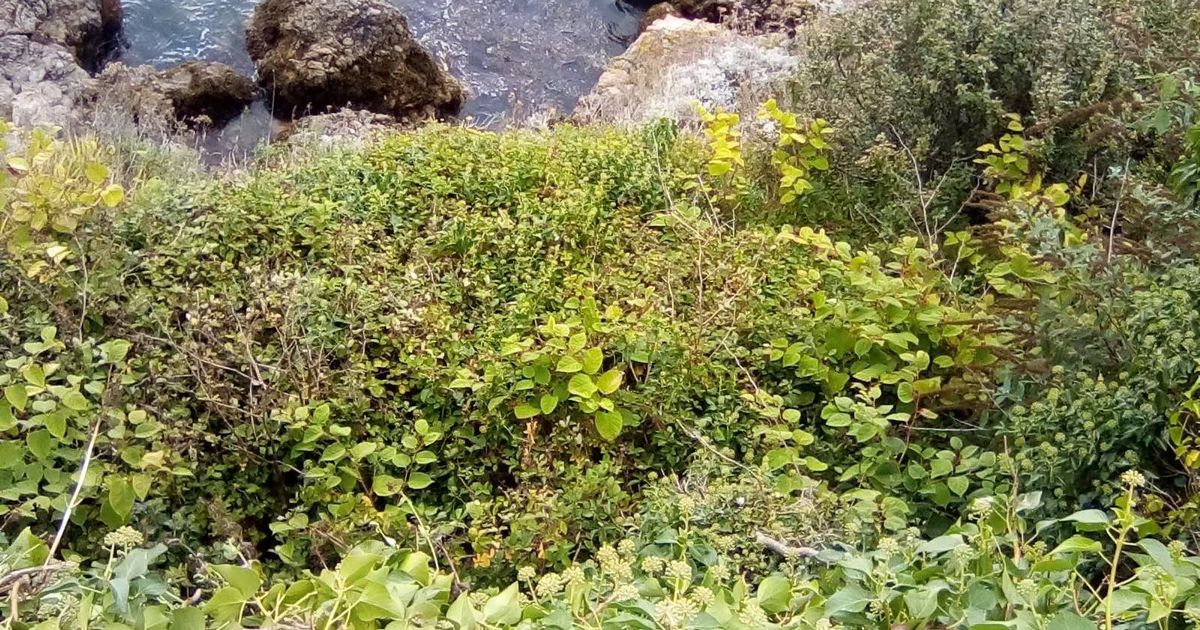It can grow through concrete and is almost impossible to remove Japanese knotweed along Hoe waterfront(Image: Martin Moore)
Japanese knotweed along Hoe waterfront(Image: Martin Moore)
Japanese knotweed, branded by the Environment Agency as “indisputably the UK’s most aggressive, destructive and invasive plant”, has emerged across a substantial portion of the Hoe waterfront.
Local resident Martin Moore discovered what he termed an “extensive area of Japanese knotweed” flourishing on the Hoe in a zone of “outstanding natural beauty next to the Corinthian cafe”, reports Plymouth Live.
Martin commented: “It is a prolific invasive species and takes over the natural habitat as it’s doing at the Hoe, it is spreading to the other side of the bushes.
“In Japan it is a delicacy, grilled like asparagus, fermented to make beer or turned in to ice cream, perhaps the Corinthian cafe should get it on the menu!
“On the downside it could devalue property and requires professional eradication. We reported it to Plymouth Council through their dedicated Japanese Knotweed website weeks ago but no reply.”
Thanks to its robust, penetrating root system, the plant is notoriously challenging to eliminate and can infiltrate cracks in concrete, driveways, patios, pathways, drainage systems, and even penetrate wall cavities within homes.
Plymouth stands as the most severely affected location for Japanese knotweed throughout Devon, with insurers stating that combating knotweed costs the UK economy nearly £250 million annually – not only from potential damage to properties, outbuildings and gardens, which can prove expensive to rectify, but also from legal complications arising from encroachment or during property transactions.
The plant can be recognised by its tough, bamboo-like stems and characteristic shield-shaped bright green foliage which develops in a zigzag formation along the stalk.
Japanese knotweed typically appears in March or April and expands quickly to achieve heights of up to 2.5 metres by midsummer.
This invasive species, which was brought to Britain as a decorative plant during the nineteenth century, requires expensive specialist intervention for removal.
A Plymouth City Council representative informed PlymouthLive: “We’re aware of this case of Japanese Knotweed and have treated it in previous years, but because of its perilous position on the face of a cliff, we are looking to schedule further treatment with specialist equipment.
“Rest assured, though, its on our radar and arrangements will be in place soon.”
